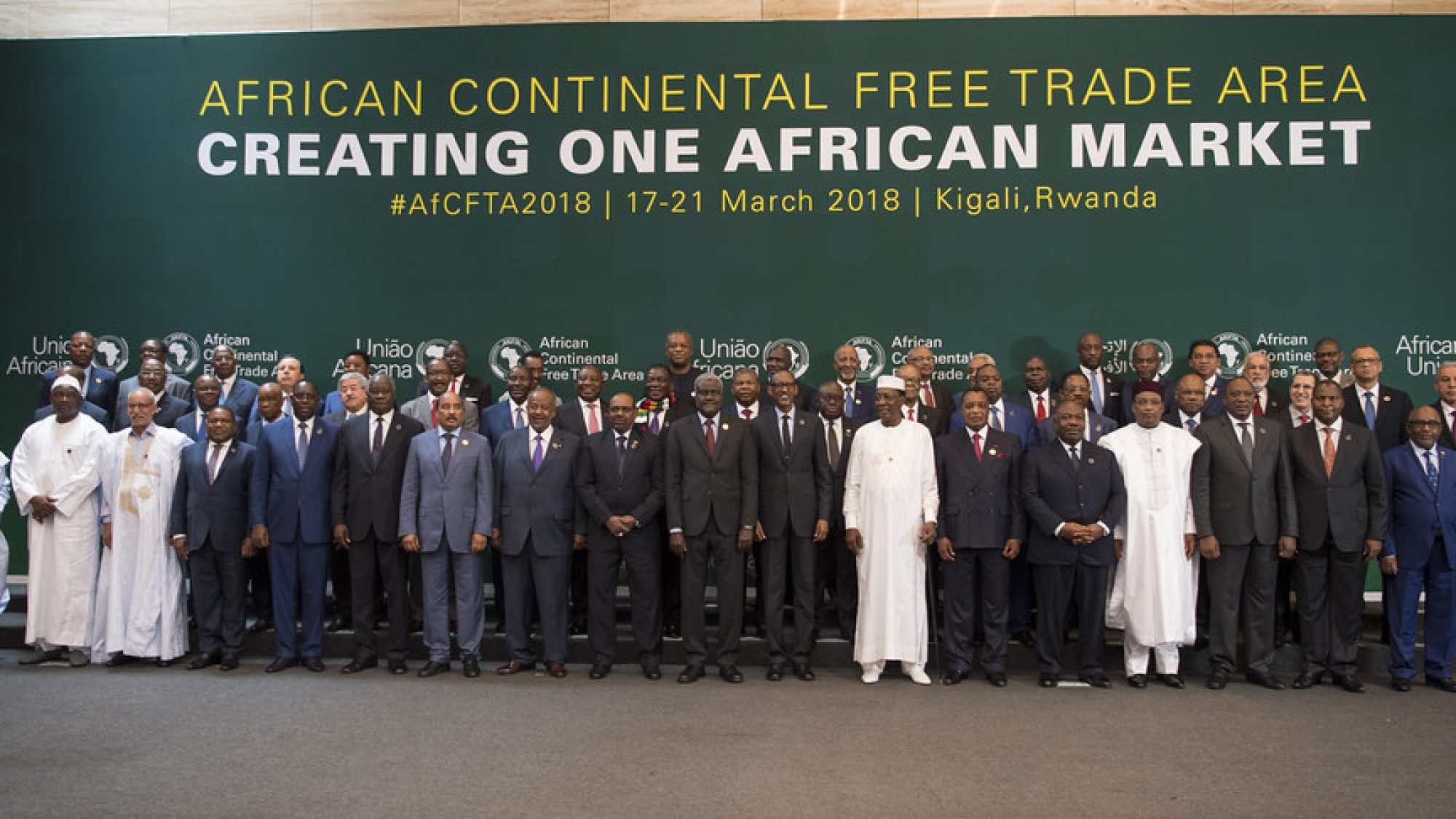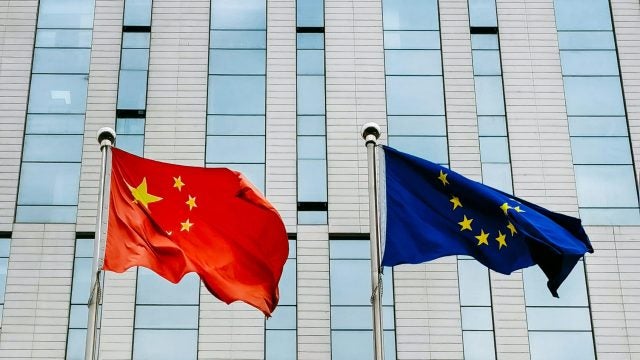
Title: The African Union Private Sector Development Strategy: A Catalyzer of Socio-economic Transformation in Africa
The private sector is an engine for inclusive and sustainable growth and has the potential to accelerate socioeconomic transformation. Overcoming the daunting challenges facing the private sector to attract increased knowledge-intensive investments requires bold reforms beyond business as usual. In the post-COVID 19 period, the African Union Commission (AUC) seeks to design and implement a new set of policies and build transformational partnerships among member states, development partners, multilateral organizations, and private companies to achieve the vision and aspirations of Agenda 2063, Africa’s blueprint for economic development.
During the last two decades before COVID-19, Africa recorded an average annual 4.6 % growth rate despite an unfavorable international economic and financial environment. This growth was mainly driven by high commodity prices, investment in infrastructure, diversification of trading partners, and increased domestic demand coupled with improved governance, institutional reforms, and sound macroeconomic policies. However, the pandemic disrupted growth trends, plunging the continent into its first recession in 25 years. In the interest of reaching the Agenda 2063 annual growth target of seven percent, there is a growing consensus among member states about the role of the private sector in fostering inclusive growth and structural transformation. Nowadays, the private sector generates seventy percent of the continent’s output, seventy percent of investment, and ninety percent of employment. But the sector is essentially composed of informal micro and medium enterprises with limited capacity to catalyze development. The private sector also operates in an environment with limited public sector capacity for effective regulation, including a non-restrictive business environment, inadequate infrastructure (soft and hard), skills shortages and mismatches, and limited access to finance. It is in that context that the AUC adopted the 2016-2020 private sector development strategy (PSDS) with the aim of reinforcing private sector roles in fostering structural changes that create employment opportunities for the continent’s youthful population.
Assessing the AU Private Sector Development Strategy
The 2016-2020 PSDS was designed to support the goal of Agenda 2063: an integrated, prosperous, and peaceful continent, one driven and managed by its citizens and representing a dynamic force in the international arena through a vibrant and competitive private sector. Built around three pillars, it aimed to boost Africa’s productivity via a broad-based and diversified inclusive growth through progressively shifting labor to sectors with higher productivity in agriculture, industry, and services.
The first pillar of the strategy, “Africa’s Business and Investment Climate”, supports member state efforts in strengthening the legal, regulatory, and institutional frameworks that govern business to formalize the informal sector as a means to fight against corruption, illicit financial flows (IFFs), and related effects on peace and security. The second pillar, “Development of Continental Productive Capacities” supports economic diversification by tapping into global knowledge. The third pillar, “Achieving Crosscutting Developmental Priorities”, ensures equal economic opportunities through effective regional policies.
An assessment of the strategy’s successes shows that the Commission worked closely with member states and private entities to develop and implement sound policies like facilitating the creation of decent jobs, particularly for women and youth. The implementation of the strategy facilitated, through various high-level policy dialogue platforms, the adoption of a wide range of regulatory, legal, and institutional reforms for more efficient and fair markets to attract foreign investments.
A major milestone was the adoption of the Pan African Investment Code (PAIC), a guiding instrument aimed at achieving regulatory coherence on investment issues within the continent in response to the evolving international economic and financial environment. The PAIC is an innovative instrument in terms of objectives, standards, and structure as it brings a sustainable development perspective; contains obligations for investors in terms of corporate social responsibility, human rights, treatment of natural resources and corruption; and ensures adequate flexibility through Most-Favored-Nation Treatment and National Treatment exceptions. Accordingly, progress in reducing both administrative procedures and the costs of starting and running a business have resulted in a more attractive business environment for local and foreign investors. Africa’s business opportunities are now attracting international investors interested in more than just the continent’s endowment in natural resources.
Challenges and opportunities for the AU Private Sector Strategy
Despite remarkable progress, the strategy has fallen short because of inadequate integration of private sector activities in the Commission’s portfolios and insufficient collaboration with member states. In addition, the incomplete implementation of private sector forum recommendations has led to limited effects on the fundamental challenges facing private companies. As a consequence, Africa’s growth has not translated into poverty reduction or accelerated economic diversification. The daunting challenge facing the continent is that of socioeconomic planning to catalyze inclusivity and economic transformation through private sector development. Notwithstanding existing challenges, the evolving global and continental environment offers impressive opportunities to accelerate economic transformation. Future PSDS pivotal areas of concentration will include: updating and improving investment promotion; promoting structural transformation through diversification into higher value-added sectors; promoting the culture of a knowledge-driven society by developing domestic capabilities and using global knowledge; bridging the private sector financing gap by leveraging innovative sources of funding; developing and implementing integrated support programmes simultaneously offering financing, business services, and entrepreneurial skills learning; increasing the supply and quality of skilled labor; and accelerating the continental integration agenda.
As regional integration is a key driver for the acceleration of structural transformation, the African Continental Free Trade Area (AfCFTA) instituted on 1 January 2021 solidified a unified continental market that offers tremendous opportunity to accelerate economic upgrading and progress towards the African Economic Community. With a market of 1.2 billion consumers, the AfCFTA offers huge opportunities for enterprises to do business across the continent and for countries to diversify their economies in order to increase intra-African trade. African firms can increase productivity and take advantage of new business opportunities to leverage the Fourth Industrial Revolution, as well as unlock the continent’s immense potential through strengthened regional value chains. AU support to PSDS will contribute to upgrading local companies’ abilities to harness the Digital Transformation Strategy for Africa 2020-30 to boost productivity and quality jobs. The Commission’s strategy to increase access to finance, deepen financial inclusion, and strengthen abilities to gather domestic resources will be supported by the establishment of AU financial institutions—including the African Investment Bank, the African Monetary Fund, the African Central Bank and the Pan-African Stock Exchange (Article 19 of the AU Constitutive Act).
Leveraging new sources of finance in Africa: the case of PPP
As the lack of access to capital and appropriate financial services remains a major constraint to private sector development, the Commission’s efforts will contribute to scaling up both domestic and external financial resources to accelerate structural transformation through industrialization. In addition to domestic public-private resources and Foreign Direct Investments, special emphasis will be placed on the utilization of innovative sources of finance such as sovereign wealth funds, pension funds, insurance savings, private equity funds, diaspora and sovereign bonds, remittances, fintech and public–private partnerships (PPPs).
In the particular case of PPPs, the Commission’s support will facilitate linkages between public and private entities for socioeconomic infrastructure development. As only a few member states have benefited from PPPs thus far, the Commission will also attempt to further leverage the potential of PPPs through the provision of strategic technical assistance to member states for improved legal, regulatory and institutional frameworks and the provision of expertise to attract increased capital from domestic and foreign investors.
The way forward: Building transformational partnerships for private sector development
Under the framework of Agenda 2063, the continental consensus stipulates that Africa’s development relies on African capacities to mobilize domestic resources and maximize partnerships. Domestic resources supplemented by international partnerships are vital to achieve Agenda 2063 and the UN Sustainable Development Goals as enshrined in the Addis Ababa agenda on financing for development.
Going forward, there is a need to design new policies to increase productivity and build transformational partnerships in the post-COVID-19 period. The Commission will strengthen economic ties to sustain the momentum of current reforms for partnerships in terms of business transparency, responsible business practices, human capital development, and effective investment policy and promotion. The continued development of these areas will serve to attract knowledge-intensive investments to diversify the local economy and reap the opportunities of the new production revolution. As substantial financial resources are required, enhanced partnerships between Africa and the rest of the world are essential to combat IFFs and finance continental infrastructure, energy, agriculture, and industry investment needs. Future partnerships should be based on common interest, shared ownership and prosperity, responsibility, reciprocity, and mutual accountability and transparency.
. . .
Dr. Patrick NDZANA OLOMO is Economist at the African Union Commission (since 2013) and member of the editorial board of the African Integration and Development Review and Science, Technology, Development. He holds a PhD in Economics from the University of Dschang, Cameroon. His research focuses on private sector development, investment and regional integration. His latest book, African Union’s Minimum Integration Programme, was published in March 2021 by Edition le Manuscrit.
Image Credit: “10th Extraordinary Summit of the African Union | Kigali, 21 March 2018” is licensed under CC BY-NC-ND 2.0
More News

This article contends that South Africa’s 2025 G20 presidency presents a critical opening to shape governance of critical mineral supply chains, essential for renewable energy, digital economies, and national…

Germany’s economy is being throttled by a more competitive China that has usurped its previous manufacturing dominance in many industries. In response, Germany has doubled down on the China bet…

In 2021, the European Union (EU) attempted to assert itself in the Indo-Pacific arena to increase its geopolitical relevance by releasing an ambitious and multifaceted Indo-Pacific Strategy. However, findings from…